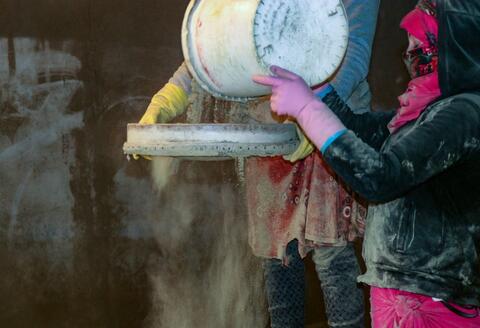Saudi Arabia announced on Friday a ban on imports of fruits and vegetables from Lebanon, blaming an increase in drug smuggling, in a measure that will add to Lebanon’s economic woes.
The country is already in the throes of a deep financial crisis that is posing the biggest threat to its stability since the 1975-1990 civil war.
The Lebanese foreign ministry said it had been informed of the ban through the Saudi embassy and the foreign minister had relayed it to top officials.
Saudi Arabia bans entry of Lebanese fruits and vegetables after shipments used to smuggle drugs https://t.co/BdwOcB7PH7
— The New Arab (@The_NewArab) April 24, 2021
“Lebanese authorities must exert utmost efforts to control all smuggling operations … to prevent harm to innocent citizens, farmers, industrialists and the Lebanese economy,” the foreign ministry statement said.
The Saudi authorities said Lebanon had failed to take practical measures to stop the smuggling. The ban will take effect from 900 am. local time on Sunday and last until Lebanese authorities provide “sufficient and reliable” guarantees they will take the necessary measures to stop systematic drug smuggling in Saudi Arabia, state news agency SPA reported.
One Lebanese official, speaking on condition of anonymity, said the ban appeared to be political.
“The export of Lebanese vegetables and fruits to the Gulf countries and especially the kingdom was one of the few doors that were still open to bring dollars into the country. Closing this import line increases pressure on Lebanon,” he said.
Saudi customs authorities at Jeddah Islamic Port foiled an attempt to smuggle in more than 5.3 million Captagon pills, a type of amphetamine, hidden in pomegranate shipments that had come from Lebanon, said Mohammed bin Ali al-Naim, undersecretary for security affairs at Saudi Customs, according to SPA.
Lebanese agriculture minister said the move was a "great loss" and that the trade was worth $24 million a year.https://t.co/wdgWmADk1j
— Yahoo Philippines (@YahooPH) April 23, 2021
Lebanon’s total imports to Saudi Arabia were worth 273.1 million riyals ($72.82 million) in the fourth quarter of 2020, official Saudi data showed.
Lebanon’s foreign reserves have been depleted and its currency has lost around 90% of its value since the start of the financial crisis in late 2019.
Saudi to stop imports of Lebanese produce@MouhanedD https://t.co/52Iy7UOLpp https://t.co/yznzsUwZxX
— Human (@BeirutBased) April 23, 2021
Its economic collapse is being compounded by political deadlock, with politicians unable to form a government to unlock much-needed foreign aid.
Alarmed by the rising influence of Hezbollah, Arab Gulf states have taken their distance from cash-strapped Lebanon.
This article has been adapted from its original source.










